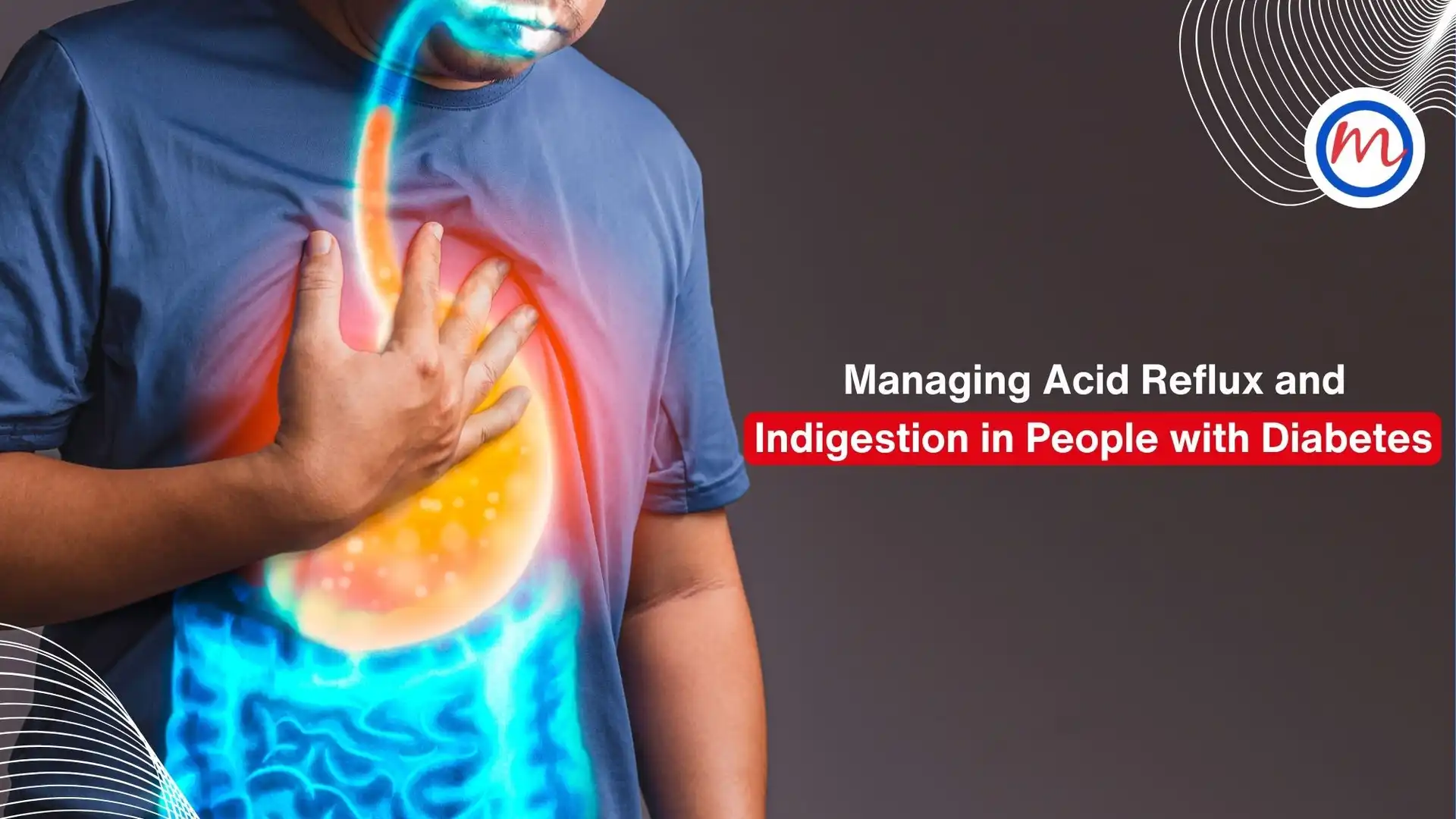Managing Acid Reflux and Indigestion in People with Diabetes
Introduction
If you have diabetes and often experience a burning sensation in your chest, bloating or discomfort after meals, you’re not alone. Many people with diabetes also suffer from acid reflux and indigestion, conditions that affect the upper digestive tract. These issues can interfere with daily life and even impact blood sugar levels. Fortunately, with a few adjustments, these symptoms can be managed effectively.
What Causes Acid Reflux and Indigestion in Diabetes?
Acid reflux, also known as gastroesophageal reflux disease (GERD), occurs when stomach acid moves up into the oesophagus. Indigestion, or dyspepsia, refers to discomfort or pain in the upper abdomen after eating.
In people with diabetes, especially those with long-standing or poorly controlled blood sugar, the nerves controlling the stomach and oesophagus can become damaged. This condition, known as diabetic autonomic neuropathy, slows down digestion and increases the chances of acid and gas build-up.
Common triggers include:
- Poorly controlled blood sugar
- Eating large or fatty meals
- Lying down soon after eating
- Smoking
- Certain diabetes medications
- Obesity
Symptoms to Watch For
- Burning sensation in the chest (heartburn)
- Sour or bitter taste in the mouth
- Bloating or fullness after small meals
- Nausea or belching
- Upper abdominal pain
- Regurgitation of food or acid
These symptoms not only cause discomfort but can also make blood sugar harder to manage, especially if they lead to skipping meals or overeating.
Why People with Diabetes Are at Higher Risk
Diabetes can slow down the movement of food through the stomach, a condition known as gastroparesis. When food stays longer in the stomach, it increases acid production and raises the risk of reflux. In addition, high blood sugar can weaken the lower oesophageal sphincter, the valve that prevents acid from moving upward.
People with type 2 diabetes and obesity are at even higher risk due to increased abdominal pressure and insulin resistance.
Tips to Manage Acid Reflux and Indigestion
Managing reflux and indigestion starts with blood sugar control and lifestyle changes. Here are simple, practical steps you can take:
- Eat Smaller, More Frequent Meals
Large meals increase stomach pressure, leading to reflux. Eating smaller portions helps ease digestion.
- Avoid Trigger Foods
Reduce intake of spicy foods, coffee, citrus, tomatoes, chocolate and carbonated drinks—all known to worsen reflux.
- Stay Upright After Eating
Avoid lying down for at least 2–3 hours after meals. Gravity helps keep stomach acid where it belongs.
- Elevate Your Head While Sleeping
Use pillows or a wedge to raise your upper body while sleeping. This reduces night-time reflux symptoms.
- Monitor Blood Sugar Closely
High blood sugar can slow digestion and worsen reflux. Stick to your diabetes care plan and monitor levels regularly.
- Limit Alcohol and Quit Smoking
Both weaken the valve between the stomach and oesophagus, increasing the chance of acid reflux.
When to Seek Medical Advice
If you frequently experience heartburn or indigestion despite lifestyle changes, it’s time to see a specialist. Long-term acid reflux can lead to oesophageal inflammation, ulcers or even


